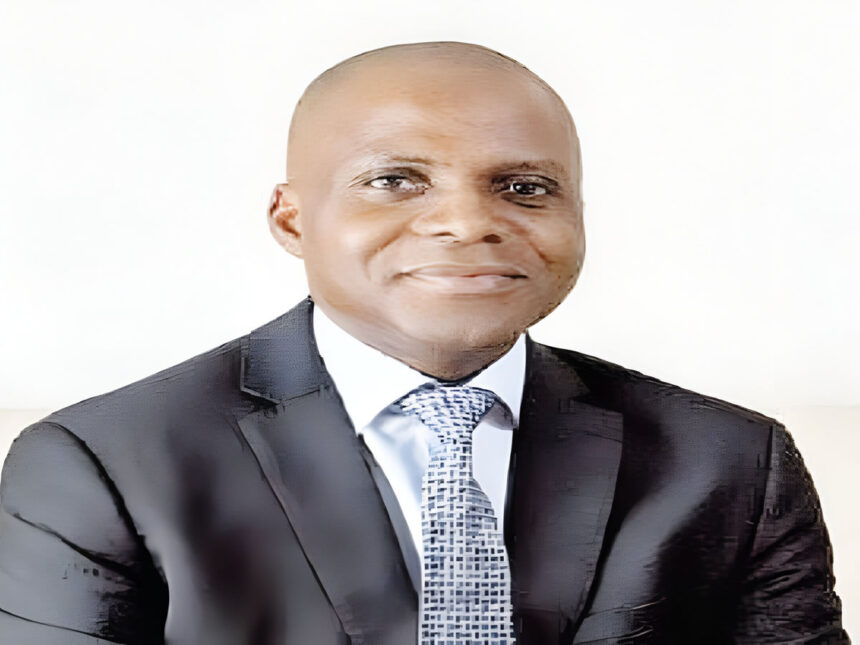Nick Agule, a chartered accountant who spent about 27 years in the oil sector before his retirement, shared the story of his life with SEGUN KASALI.
How was growing up?
I grew up poor. I was raised in a thatched house, which simply means the family could not afford to have a corrugated roof in the house. My parents were uneducated, but they loved education. They made sure I got educated. Even though I eventually went to the University of Benin, I grew up in Benue State, and had my work career in Southern Nigeria.
Any particular experience(s) you will like to attach to growing up in Benue State?
Well, all I can remember very vividly is that to eat was even a problem. You would wake up in the morning as a child and there would be no food. Sometimes, your parents would even come back home from work with nothing to put together as food. Even when you had food, it was the type you just had to eat to quench hunger and not something nutritious or balanced. It was that bad.
But with all those odds stacked against you back then, how were you able to swim against those ‘tides’ and survive?
I resorted to selling kerosene when I was in primary school to be able to get some money. Sometimes, it was my neighbour that would give me some money. I, sometimes, would go to my grandma’s place. Here, I will like to give credit to my grandmother for her motivation. She was always inspiring me, especially in the area of having quality education. She would tell me stories of those who went to school and were given a car immediately after graduation. She would tell me, ‘You will be given a car if you are able to go to school, and are able to graduate. You will also start living quality life’. She did this by showing me examples. So, that motivated me to want to graduate and have a car. And, of course, you could clearly see the difference between those who were in school and those out of school then. For instance, my father was in the military, serving as an ordinary rank, and I could see the difference between officers and the rank and file. Their cars, uniforms and even their Officers’ Mess were different. So, all of that shaped my perception towards education.
So, you were actually motivated to go to school by your grandma?
Yes, I was motivated to go to the university in order to get the car my maternal grandmother spoke about and to live the quality life people that were educated were living. I did not usually take first position in school but I was an average student. I think I came first on a couple of occasions, but not every time. I think I would consider myself to be very keen to educate myself. So, the determination within was such that regardless of the hurdles before me I wanted to get education.
But did you have any career ambition while growing up, and, if yes, what was it?
In my primary school days, I did not have anything planned out regarding what I wanted to be. But, in my secondary school days at Government College, Makurdi, I was put in a Commercial Class and I made up my mind to become an accountant. Eventually, I ended up being one.
Was there any particular experience that has come to stay with you?
My grandma told me that I was very sickly when I was born, and that there was this doctor in a Christian hospital that became so frustrated with my lack of recovery. One day, he asked the nurses not to administer any medication for me throughout the night, saying if I was going to die, so be it, but if I survived till the following day, he would see what he could do. When he arrived the following morning, I was looking at him with my two eyes with some sort of a smile from the corner of my cheek to tell the doctor that I am still much alive. What motivated me was the desire to have an education. I never played with my studies. I was never pushed for my studies.
How was life in the university amidst financial difficulties?
I went to the university in 1985 and when I was leaving Gboko to go to Benin, Lawrence Anenih, that notorious armed robber, was still on the streets of Benin, prowling. So, my mum didn’t even want me to go. But, my dad was able to convince my mum’s brother who was a police officer to tell my mum that he would look after me. So, I travelled from Gboko to Onitsha and to Benin City. I arrived in Benin City first time alone. I met fantastic classmates. Of course, I was the only northerner in my class. I was in the hostel and a guy from Edo State squatted with me. I enjoyed the university. Before I left for school, my parents gave me N100, which was the biggest money I ever had in my hand. I spent N22 on transportation. I could not afford three square meals per day. We had a formula then. We would eat maize and drink a lot of water when it was time for maize. I was doing well in my academics and I never failed any subject. I graduated with Second Class Upper. I was retained to teach at the University of Benin. Nobody else made a First Class. I think the department must have seen some potential in me for them to be able to invite me to be a graduate assistant. After my NYSC and a brief term at Federal Polytechnic in Idah, I came back to Benin where I taught. I did my Master’s there. When I went back to Benin three years ago, the Dean of the Faculty was my student. The Head of Department is my former student. Most of the professors were my former students. It is 30 years this year, since I left teaching.
So, why did you leave lecturing?
I left lecturing in 1995, and the reason for that was money. I loved my job as a teacher; it gave me academic freedom, and the fact that I could see my students come in without any knowledge, and by the time they left my class, we would be talking like colleagues through how much impact I was making in the lives of these young people. So, I loved that aspect of my job. There was not so much money in teaching. But my colleagues in oil sector were talking big money. So, that actually sent me away from lecturing. Unfortunately, I would say I went but still didn’t make the money. But, the motivation was to go and make money.
Did you meet your wife while teaching?
Not at all. I met her in a very different sector. Actually, my cousin was quite instrumental in meeting her. His wife was a very good friend of my wife. My wife was the chief bridesmaid at their wedding. She had gone away with their marriage certificate because she forgot to give it to them before she departed for Abuja. I was already in the oil industry in Warri then. So, I came to Abuja for an official business when she came to deliver the marriage certificate to me because my cousin and his wife lived in Lagos while she was living in Abuja. So, that meeting with the young lady was what led us to becoming husband and wife today.
What attracted her to you?
Her natural beauty. She had the physical features I have always wanted in a lady. Later on, her character about the future and ability to take on projects convinced me we could have a life together.
Any regrettable moments looking back?
Quite a number of them. First and foremost, I wanted to be a Naval Officer and went to the selection of the Sixth Regular Course but did not make it. I felt bad. Secondly, the fact that I left the academic world in search of elusive money that I did not eventually find in the oil industry, I still feel bad about this. I think I would have made more impact in the academic world and would have been a professor by now doing less work. Academic work is not as taxing as sitting in the corporate offices where you would wake up in the morning and remain in that corporate edifice till the end of the day. Your restaurant and your convenience are all there. I am that person that takes anything that comes to me as the will of God for me. So, I would just conclude I could have got it if God wanted me to have it.
What are your philosophies?
My philosophy in life is that life is temporary. We are here but just a while. Everyone is going to sleep forever, and that what we need to do in this life is to make an impact as long as we live. In doing that, we need to be honest in all our dealings. As for me, nobody would say they had a dealing with me and they went away short-changed or it did not happen the way it was agreed. Sometimes, I take the whole life as a drama.
How do you relax?
Most times, I am at home because I could have meetings. I watch TV a lot. Of course, I play badminton, and I chill with friends anytime the opportunity permits.
READ ALSO: How my History lecturer taught me invaluable lesson —ED, MTN Foundation
WATCH TOP VIDEOS FROM NIGERIAN TRIBUNE TV
- Let’s Talk About SELF-AWARENESS
- Is Your Confidence Mistaken for Pride? Let’s talk about it
- Is Etiquette About Perfection…Or Just Not Being Rude?
- Top Psychologist Reveal 3 Signs You’re Struggling With Imposter Syndrome
- Do You Pick Up Work-Related Calls at Midnight or Never? Let’s Talk About Boundaries







